How TrueCommerce’s Ecommerce Security Protects Your Online Business
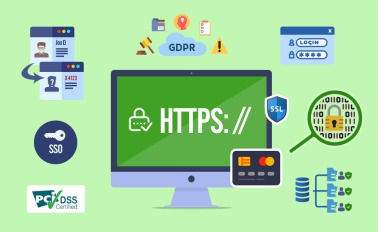
August 29, 2019
With ecommerce, you need to make sure the platform you’re using is secure. A platform shouldn’t only be there to maximise sales and help your customers, it should also protect your customers and your reputation.
TrueCommerce has a number of features that protects your platform from information leaks, hacks and ecommerce other security concerns.
Below, we list how our e-commerce security protects your online business.
1) Are You GDPR Compliant?
GDPR, which stands for the General Data Protection Regulation, should be at the forefront of any ecommerce platform and online business. Coming into force in 2018, the data privacy law returned control of personal data to people and ensured companies collected, stored and analysed data safely.
As a result, companies are now more liable when it comes to data breaches and mishandling of personal details. To that end, your business must ensure GDPR is being followed to the minutest detail, as well as ensuring data security is watertight.

Failure to comply means big fines from European regulators who can, and will, fine companies for up to 4% of its annual global sales. If you’re a smaller firm, this fee will be capped at €20 million, but larger firms can be fined in the billions.
Outside of lawful punishments, the reputational damage from data breaches is felt now more than ever. Your average customer is now savvier when it comes to the consequences of breaches and the value of their personal data, meaning failure to protect them can cost companies loyalty and future business.
TrueCommerce protects your customer’s details by being fully GDPR compliant, offering sophisticated encryption functionality and pseudonymisation of personal details which maximise security and compliance.
2) From Niche to Essential: HTTPS/SSL Encryption
HTTPS has now overridden HTTP for good reason. Previously, HTTP web pages sent data in clear text, meaning eavesdroppers on the same network connection could see everything.
HTTPS covered that security base, paving over the cracks of HTTP by using certification to guarantee a website’s identity and ensure personal data as well as sensitive data, such as payment information between bank and vendor, is secure.
HTTPS was originally used on websites that contained sensitive information, but it has now been rolled out to the entire web. These days, users expect a website to have HTTPS or SSL encryption when making a transaction.

There are SEO benefits for using HTTPS and SSL encryption, but most importantly it protects payment data when sent to the ecommerce platform and then the bank. Similarly to GDPR, a lack of HTTPS functionality can lead to reputational damage.
TrueCommerce has full HTTPS and SSL support, so both you and your customers can enjoy peace of mind and risk-free transactions.
3) Ensuring Password Complexity
Basic password complexity protocols are important in maintaining the security of your customers’ accounts. By simply ensuring customer passwords meet a baseline standard of complexity and installing lockouts after a succession of failed log-in attempts, your customer’s account details stay secure.

Of course, if your ecommerce platform doesn’t attempt to hinder the rise of compromised accounts and hacking attempts, then it’s likely going to amass a negative reputation that is difficult to shake.
4) Security and UX: Single Sign-On (SSO)
Single sign-on (SSO) is a system that allows for seamless authentication between systems without the need to log-in each time. By using one set of credentials, secure authentication between multiple devices, websites and applications is possible.
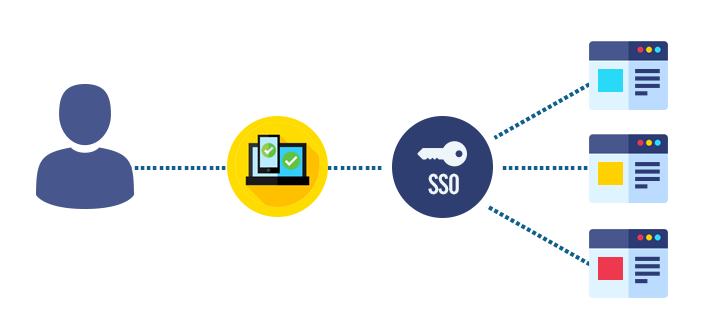
The feature is utilised by the same technology used by Microsoft, Google and Facebook to provide secure authentication and inter-compatibility. When having trusted relationships with other systems and sharing SSO, your customers can enjoy a streamlined, UX-friendly journey through your site and its partners.
5) Encryption: The Strongest Line of Defence
The usual layer of physical security precautions and firewalls are not enough. These need to be encrypted to provide an additional level of protection from external hackers and reduce the potential for data theft from employees.
Encryption means converting normal text into “ciphertext”, making it impossible to read until it is decrypted. By encrypting this text, storage of data becomes risk-free, cutting out the probability of an unwanted middleman intercepting data and using it for malicious reasons
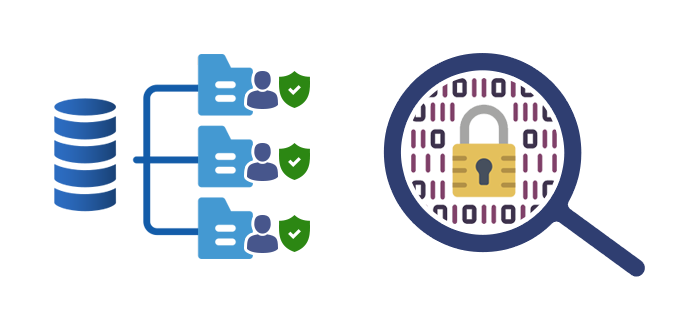
Decryption can only occur if a person has the decryption key, thus ensuring that if the usual defences are broken then there is a back-up to protect data.
Most personal information is now coupled with purchase history, so if a hacker got their hands on you or your customer’s personal details, they’d be able to access important financial information. Utilising encryption is another reason why TrueCommerce is a safe bet when it comes to ecommerce security; even if your server’s security is compromised, the information will still be secure.
6) Tongue Twister: Pseudonymisation
Pseudonymisation is a method which enhances privacy by substituting identifying fields within data with artificial identifiers (pseudonyms).
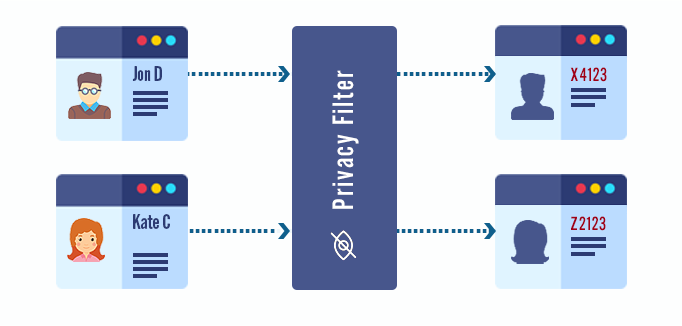
This means all personal data is and held separately from any profile or analytical data that can be traced to a person.
TrueCommerce’s psudonymisation features ensure personal data appeases GDPR standards and remains safe.
7) Application Firewalls
The aptly named application firewall protects application communications in the same way networks are protected.
To that end, an application firewall controls who has access to and from an application or service – any activities that do not meet the policy of the TrueCommerce application firewall are immediately blocked.
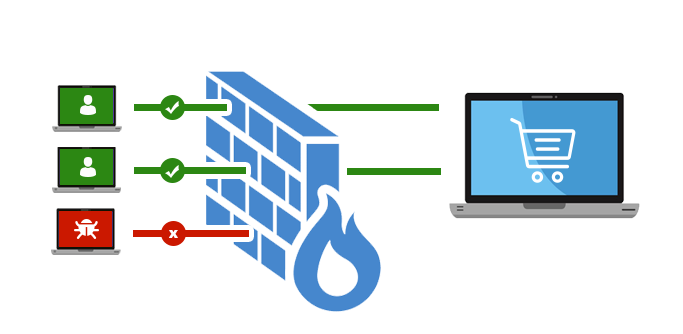
These firewalls are acutely aware of the language of applications which convey and communicate information, meaning they can proactively stop suspicious behaviour. These security features detect and ban persons attempting to find weaknesses in a platform to steal, modify or destroy data.
TrueCommerce utilises application firewalls to prevent malicious users from poking holes in your ecommerce solution, solving security breaches before they occur.
8) PCI DSS: Keeping Card Payments Safe
When receiving payments via card you, the vendor, have a legal responsibility in ensuring these details remain secure. The only way to do this is through Payment Card Industry Data Security Standard (PCI DSS) compliance.
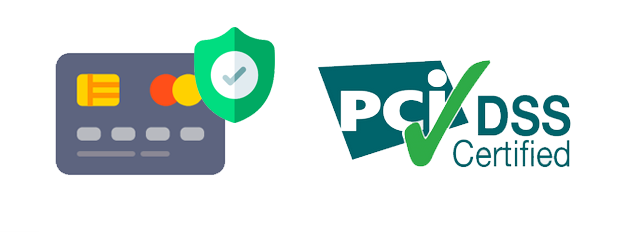
PCI DSS compliance means that card information is stored, communicated and processed in a safe way. TrueCommerce integrates PCI DSS compliance into our platform which allows you and your customers to make payments in a way that’s legally sound and safe.
9) Why Not Try TrueCommerce?
TrueCommerce ticks all the security boxes so you don’t have to worry about safety. We pride ourselves on the ecommerce security of our platform, extensive functionality and speed of deployment.
Share this post:
Categories
Stay ahead of the competition
Get expert supply chain insights delivered directly to your inbox weekly.